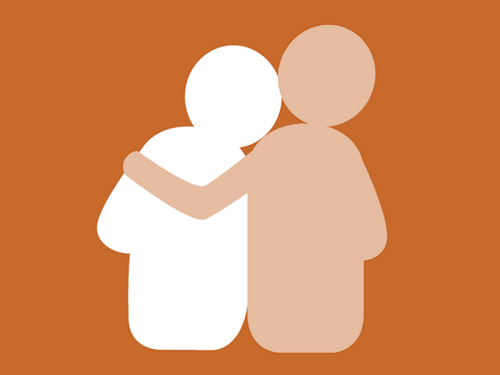Categories
How to cope with losing independence

If you or a loved one is experiencing a loss of independence, you may be able to maintain a sense of control.
Few, if any of us, look forward to losing independence. In fact, research reveals that 75% of older people feared losing independence while only 29% feared dying[1]. It also revealed that 44% were worried about moving into an aged care facility.
Whether a physical, social or emotional reason prevents complete independence, it generally brings a sense of loss.
Understanding the cycle of loss
As people age, the loss of independence can stem from physical and mental changes, and social and emotional effects that dramatically alter day-to-day life.
For example, physical changes like diminishing vision or a loss of hearing can interfere with the performance of simple tasks like driving, walking long distances or communicating in general. Mental impairment can cause people to lose the ability to perform everyday tasks and become forgetful.
Such changes increase the need for help from others and add to feelings of dependence and inadequacy, while lowering confidence and stopping some people from participating in enjoyable activities. The overall impact can increase feelings of frustration, anger, guilt and isolation.
Adding to the burden may be well-intentioned loved ones who place restrictions on the person losing independence out of concern for their wellbeing. And the need to accept help often reinforces feelings of helplessness.
Increasing a sense of control
We all have a common need to retain some sense of independence and dignity while feeling we are making a valid contribution.
Some people facing a loss of independence may have previously been quite dependent on others—perhaps never holding a driver’s licence and relying on friends and relatives to drive them around.
But for many, a newfound dependence on others can be very difficult. The more capable and independent a person was in the past, the greater the loss experienced.
There are things you and your loved ones can do to increase the sense of control:
1. It’s your life, keep control
If you are experiencing a loss of independence yourself, make sure your loved ones know how you feel and what you need to live a life that continues to have meaning for you. For example, if you feel loved ones are micromanaging your every move, let them know how they can help you feel more independent and how they can support you to exert your right to make choices.
If the loss of independence is getting you down there are also support services available like Beyond Blue (P: 1300 224 636) or My Aged Care (P: 1800 200 422).
2. Loved ones, be reactive not too proactive
If your loved one is experiencing a loss of independence, it’s understandable for you to be concerned about them. It can be tempting to take the initiative and provide help, but it may be more effective in the long run to first speak with them, if possible.
The two most important questions you can ask are whether they need help and how it would be best for you or others to provide it. Letting your loved ones have a say in the help they receive can ease the emotional impact.
3. Facilitate
However you end up helping—and you may feel that you’re walking on eggshells sometimes—take care with how you go about it. If you’re able to facilitate a conversation so your loved one comes up with their own solutions and ideas, it’d be a better outcome for them, and possibly the most generous thing you can do.
4. Encourage
If possible, encourage your loved one to keep pursuing their passions or find new hobbies. Help them maintain their relationships with family and friends too. Perhaps you can help by finding activities they may be interested in.
Seeking knowledge and assistance
If you or a loved one is experiencing a loss of independence, you may benefit from further information about aged care. Please contact us for further information.
Source: AMP
[1] http://www.dlf.org.uk/blog/losing-independence-bigger-ageing-worry-dying
